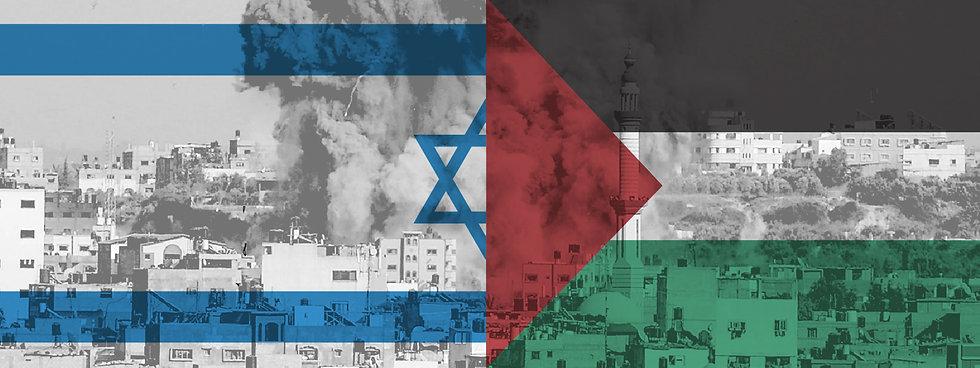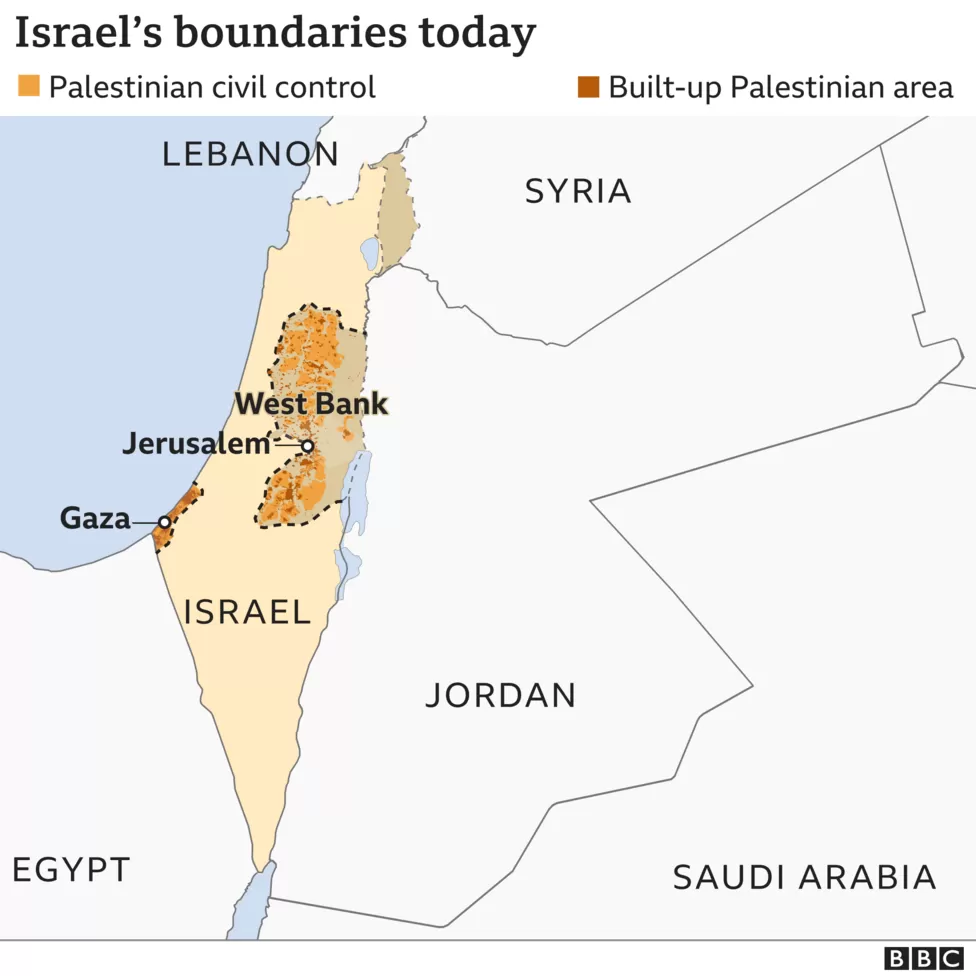The Israel-Palestine war - a 100 year old conflict
- Eva O'Donnell
- Mar 28, 2023
- 3 min read
Many of you may have heard of or discussed the topic of the conflict between Israel and Palestine. A 100-year-old conflict that has led to many deaths. 100 years, this is a war born from anger and fueled by it too; but how did it begin?

During WW1 the Ottoman empire was overthrown by the British empire, who therefore took over Palestine, which became home to a mixture of Arabic and Jewish people. However, when the British lost control of the land it was up to the people to decide who it belonged to. For Jewish it was their ancestral home, but Palestinian Arabs also claimed the land and opposed to move out. Between the 1920s and 1940s there was an upsurge of Jewish inhabitants due to them fleeing persecution or the Holocaust during WW2.
In an attempt to solve the situation, in 1947, the UN voted for Palestine to be split into separate Jewish and Arab states, with Jerusalem becoming an international city. This plan was accepted by Jewish leaders but denied by Arab leaders and so was never implemented. In 1948, unable to solve the problem, British rulers left, and this caused Jewish leaders to declare the creation of the state of Israel. Many Palestinians objected and a war followed. Troops from many neighboring Arab countries invaded. During what they call Al Nakba, or the "Catastrophe", many Palestinians fled or were forced out of their homes.
The next year, the fighting ended in a ceasefire and Israel controlled most of the territory. Jordan occupied land which became known as the West Bank, and Egypt occupied Gaza. Jerusalem was then divided between Israeli forces in the West, and Jordanian forces in the East. Since the war ended in a ceasefire without a peace agreement - with each side blaming the other - there were more wars and fighting in the following decades.
Now we arrive at the present day, where, currently, Israel still occupies the West Bank, and although it pulled out of Gaza, the UN still regards that piece of land as occupied territory. Israel claims the whole of Jerusalem as its capital, while the Palestinians claim East Jerusalem as the capital of a future Palestinian state. However, the ownership of land does not mean an end to this war as we have seen in the many recent attacks between the two countries. For instance, in an Israeli military raid in Nablus during the last month, 11 Palestinians were killed, according to the Palestinian health ministry. In another raid and gun-battle in Jenin the previous month, 10 Palestinians were killed.

Another recent event which has been marked as proof that the war has deep rooted grudges held by both sides, is that the Palestinian Authority's security forces fired tear gas at mourners at the Nablus funeral for one of the six Palestinian men killed in an Israeli raid just a few weeks ago in Jenin. The fighter had been a member of Hamas and had the Palestinian group’s flag draped around him during the funeral, which led to a dispute with the Palestinian Authority, which is dominated by Hamas¹ rival, Fatah.
Now you may pose the question: “Will this ever end?”. Well, the ongoing expansion of Jewish settlements on land which Palestinians claim for a future state may be seen as a root cause of their long conflict with Israel. Settlements are considered illegal under international law, though Israel disputes this and continues to go against this law. There is also no political peace process which could offer the prospect of a permanent solution, leaving decades-old grievances - the Palestinians' want of a state and Israel's want of security chief among them.
1* For further context, HAMAS is an Arabic acronym for the Islamic Resistance Movement, which originated in 1988 after the beginning of the first Palestinian intifada against Israel's occupation of the West Bank and Gaza Strip. Hamas originally had a dual purpose of carrying out an armed struggle against Israel - led by the Izzedine al-Qassam Brigades (the military wing) - and delivering social welfare programmes.
Bibliography:
Berg, Raffi. “Why Is Israel-Palestinian Violence Surging?” BBC News, BBC News, 28 Feb. 2023, www.bbc.com/news/world-middle-east-64757995. Accessed 9 Mar. 2023.
Al Jazeera Staff. “Palestinian Security Forces Fire Tear Gas at Fighter’s Funeral.” Aljazeera.com, Al Jazeera, 8 Mar. 2023, www.aljazeera.com/news/2023/3/8/general-strike-in-west-bank-after-israeli-raid-kills-six-in-jenin. Accessed 9 Mar. 2023.
News, BBC. “Israel-Gaza Violence: The Conflict Explained.” BBC News, BBC News, 14 May 2019, www.bbc.com/news/newsbeat-44124396. Accessed 9 Mar. 2023.
News, BBC. “Hamas: The Palestinian Militant Group That Rules Gaza.” BBC News, BBC News, 9 May 2011, www.bbc.co.uk/news/world-middle-east-13331522. Accessed 9 Mar. 2023.





Comments